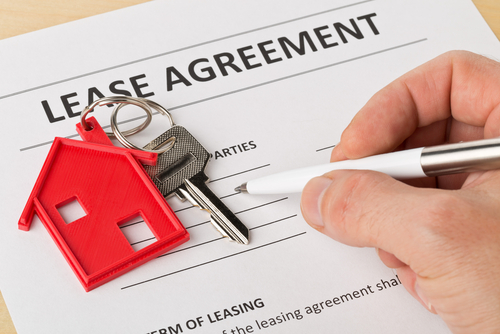In leases, break clauses serve as crucial provisions that provide flexibility for both landlords and tenants. These clauses can allow either or one party to terminate the lease before the expiration of the fixed term, this is usually subject to complying with certain conditions and notice requirements.
Break clauses are regulated by specific laws and have implications that both parties should carefully consider. This article aims to shed light on the key aspects of break clauses in leases, outlining their effects, considerations for landlords and tenants, and the importance of seeking legal advice when negotiating the break clauses and prior exercising them. Break clauses can be included in both residential and commercial leases, but this article will primarily focus on commercial leases.
What is a break clause?
A break clause is a contractual provision that grants one or both parties the right to terminate a lease prematurely. It essentially acts as an escape route, allowing parties to exit a lease early, providing flexibility in an ever-changing business environment. It impacts all parties, so it is important that both landlords and tenants have an understanding of them. The points for each party to consider differ slightly in detail and are outlined below.
Conditions
Break clauses are typically subject to specific conditions, such as the payment of outstanding rent, compliance with repair obligations, or vacant possession. These are usually negotiated and dealt with in the Heads of Terms but we always advise seeking independent legal advice on the implications of the conditions prior to agreeing these.
Points for Landlords to Consider
For landlords, it is vital to carefully draft break clauses to ensure they protect their interests. Ambiguous or poorly worded clauses can lead to disputes and uncertainty. Seeking legal advice when drafting a break clause can help landlords avoid potential pitfalls.
Notice Periods
Break clauses generally always require the serving of a notice by the party wishing to terminate the lease. The notice period can vary although is usually no less than 6 months notice, but it is crucial for landlords to clearly specify the required length of notice in the lease agreement although the length of notice will ultimately be determined by statutory requirements A notice given by a Landlord may also be invalid if it is not in accordance with legislation and so it is crucial that advice is sought before agreeing terms.
Points for Tenants to Consider
Tenants must thoroughly review the conditions associated with the break clause. These conditions may include obligations such as reinstatement of alterations, payment of outstanding sums (whether or not demanded), and compliance with repairing obligations. Failure to fulfil these conditions can lead to the break clause being invalidated, which would result in the lease continuing potentially leaving the tenant without further opportunity to exercise a break notice, depending upon the terms of the break clause. This would mean that the Tenant would continue to be liable for rent and other costs under the terms of the lease. It is also important to include express provision for any rent, insurance rent and other sums due under the lease that relates to the period following early termination is refunded to the Tenant, as this is not an automatic right.
Timing and Flexibility
Break clauses provide tenants with the opportunity to reassess their business needs and exit a lease if necessary at the relevant break period. However, tenants should be cautious about the timing of exercising the break clause. It is essential to consider market conditions, relocation logistics, and the impact on the business before deciding to terminate the lease.
Notice Periods
Similar to landlords, tenants must strictly adhere to the notice requirements specified in the lease agreement. Failure to serve the notice within the specified timeframe and in accordance with the notice conditions could result in the continuation of the lease and the tenant will have to fulfil their obligations for the remaining term.

Seeking Legal Advice
Exercising a break clause can have significant implications for both landlords and tenants. Due to the complexity and potential risks involved, it is strongly recommended that clients seek professional legal advice before taking any action. An experienced solicitor with expertise in property law can review the lease, clarify obligations, and guide clients through the process, ensuring compliance with legal requirements and safeguarding their interests.
If you need any assistance please contact Cheryl Bolt in our Commercial Property Team who will be able to help.
Email [email protected]
Call 01803 213521
Cheryl Bolt, Associate Solicitor
Email us : [email protected]
call one of our offices:
South Devon 01803 213251
Exeter 01392 274006
North Devon 01271 342268
You can also complete an online enquiry form. One of the Wollens team will contact you as soon as they are available.
Commercial Property | Wollens Solicitors



